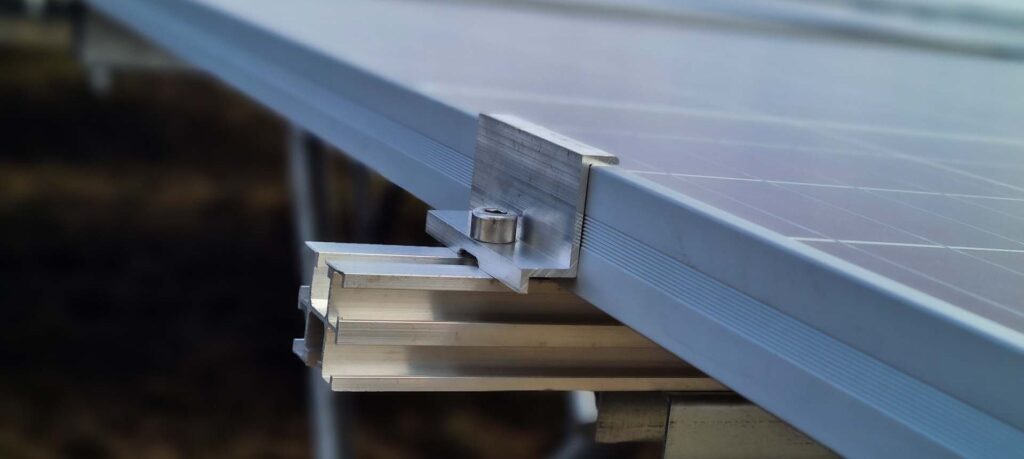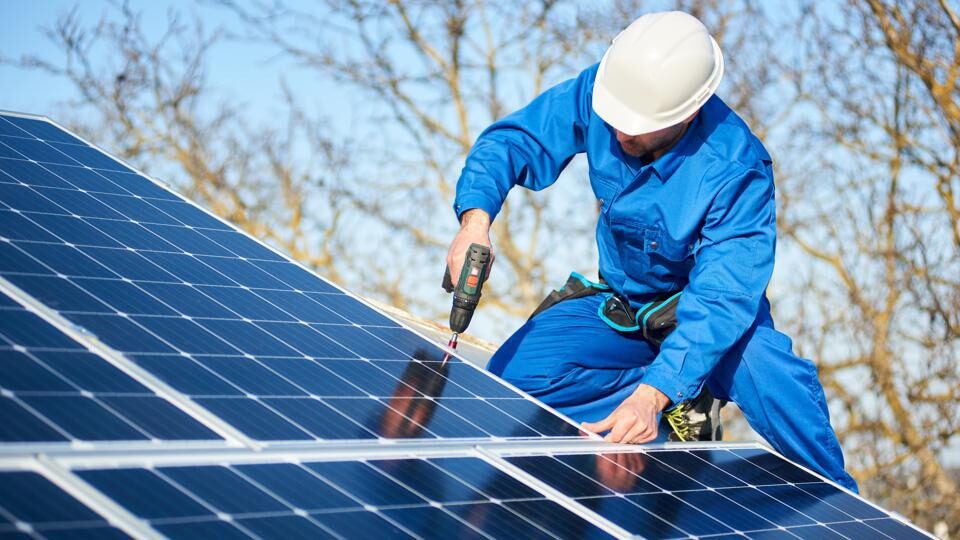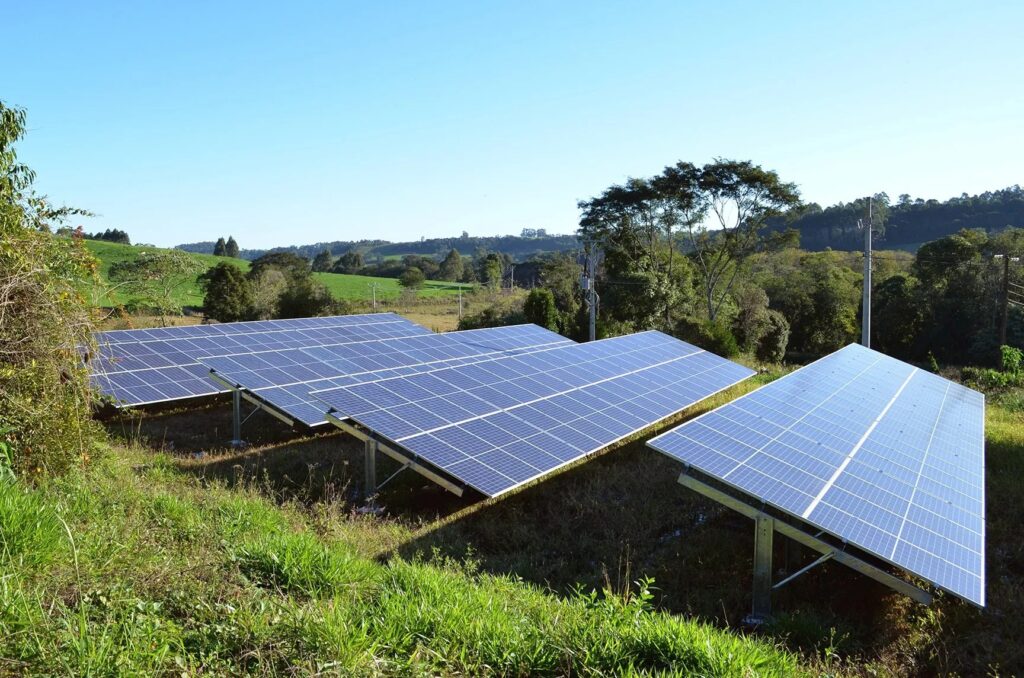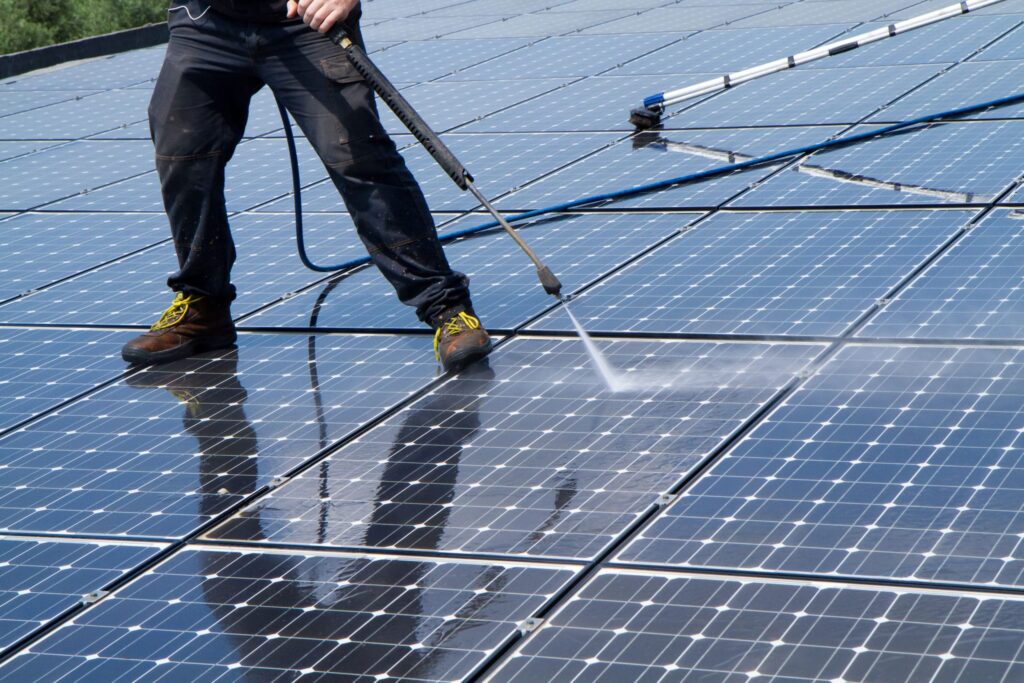Installing solar panels on your roof is a major investment that can pay dividends for decades through lower electric bills and reduced carbon footprint. However according to the experts, in order to maximize performance and savings over the long run, your home solar panels will require some periodic maintenance. Preventative maintenance keeps the system operating at peak efficiency and helps prevent minor issues from becoming major repairs down the road.
Here’s an overview of solar panel maintenance best practices to keep your home’s system in top shape, provided by the experts from Vivint Solar.
Inspecting Connections and Wiring
You should inspect the electrical connections and wiring of your solar array at least annually. Look for any loose wiring connections on the solar panels themselves as well as on combiner boxes. Combiners consolidate the output from multiple solar panels into a single circuit. Loose electrical connections can cause excessive resistance and heat, potentially leading to fires. Tighten any loose wire connections using the torque specifications provided by the installer.
Inspect the inverter wiring as well. The inverter is the heart of the solar system that converts direct current from the panels into alternating current used by your home’s appliances and lights. Loose wire connections at the inverter can also cause dangerous resistance and heat over time and should be tightened. Check that all conduit connections are intact, with no cracks that would allow moisture inside.
Check Solar Panel Fasteners

Solar panels are held in place by clamps, brackets, or rails attached to your roof. Over time, the vibration from wind and minor roof movements can cause some fasteners to become loose. Loose clamps and hardware will allow the solar panels to shift out of place, which can void warranties.
Use a calibrated torque wrench to check the tightness of all fasteners securing the solar array frame, brackets, and base plates to the roof. Compare torque measurements to the solar manufacturer’s specifications and tighten any fasteners that are loose. Do notovertighten, as this can damage components. A periodic check of all mounting hardware helps ensure the system stays properly secured in place on the roof.
Clean Solar Panels and Check for Damage
Dirt, dust, pollen, bird droppings, and other debris accumulating on your solar panels can rob the system of performance. Solar manufacturers recommend cleaning panels at least two times per year if you live in an area with normal amounts of dirt or pollen. Clean the panels more often (every couple of months) if your home is in a particularly dusty climate.
Use a soft brush and gentle cleanser made specifically for solar panels to brush debris off the glass surfaces. Never use abrasive brushes or strong chemical cleaners, as those can damage the panels. Avoid putting any pressure on the glass while scrubbing. Rinse panels thoroughly with water to complete cleaning.
While cleaning, inspect the panels carefully for any cracks, dents, or hot spots indicating faulty cells. Note any potential damage or wear to panels that appear during cleaning. If damage is discovered, contact the solar installer about whether panel replacement may be needed.
Check Inverter Operation and Filters

The inverter is the most important component ensuring top performance from your home solar panels. Check the display panel and indicator lights on the inverter monthly to spot any errors or alarms. Alert messages can indicate issues like ground faults, arc faults, grid instability, and more. Make note of any error messages and share them with your solar installer promptly. Don’t attempt to service the inverter yourself.
Inverters also have air filters that should be cleaned or replaced periodically, as recommended by the manufacturer. Clogged inverter filters cause the system to overheat.
Have Professional Diagnostics Performed Annually
While the above maintenance tasks can be performed as DIY by homeowners, it’s also wise to have professional solar technicians do a thorough inspection and diagnostics check once a year. They have specialized training and equipment to fully assess system performance and identify any issues.
The technician will check for:
- Proper voltage and amperage output from the solar panels.
- Any hot spots on panels indicating potential cell failure.
- Inverter operation and error reporting.
- Overall system efficiency compared to initial baseline.
- Integrity of all wiring connections.
- Any signs of corrosion or weather damage.
Professionals may recommend panel cleaning, wire re-torquing, or other servicing based on the results. They can also verify system components are operating to manufacturers’ specifications and not underperforming. Having an annual checkup gives you peace of mind that your system is in excellent health.
Maintain Surrounding Areas

While solar panels themselves require very little maintenance, it’s important to keep surrounding areas protected. Prune any overhanging tree branches that may grow to shade the solar array. Remove any dead branches that could potentially fall and damage panels during storms.
Keep roof drains and gutters clear of debris near the panels. Clogged drains can allow water pooling that accelerates roof wear. Professionally reseal any cracked areas on the roof or flashing near the panels to prevent leaks below.
Monitor Production Data
One of the easiest ways to keep tabs on your solar system health is to regularly check power production data through your inverter software interface. Many systems have an associated mobile app allowing real-time performance monitoring. Review historical data week-by-week and month-by-month to spot any trends in declining energy output.
Significant decreases in production could indicate excessive shading, panel faults, wiring issues, or inverter problems. Comparing solar panel production to weather and sunlight data can help pinpoint potential causes of output dips. Ongoing production monitoring allows homeowners to identify and troubleshoot problems early.
Conclusion

Maintaining a home solar system does not require significant time or expense. But staying on top of inspections, cleaning, and preventative maintenance ensures your valuable investment continues operating at maximum efficiency for decades. Partnering with solar professionals for annual checkups provides further peace of mind. With proper care, your solar panels will provide clean, renewable power and savings for your family for years to come.









